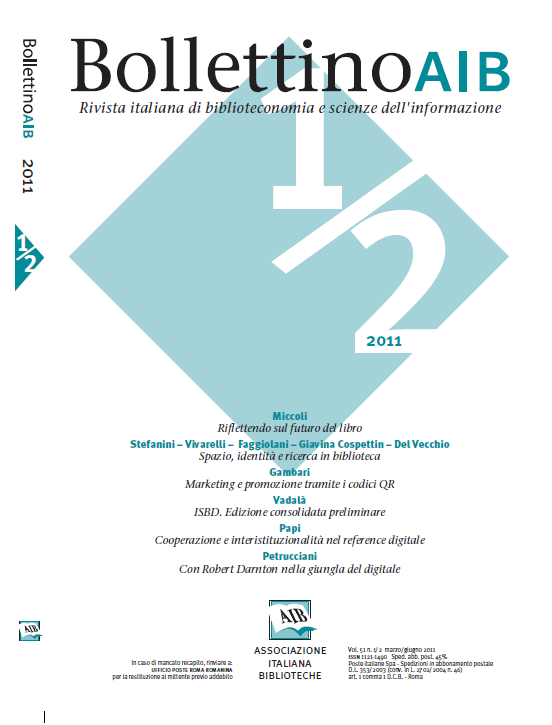On the future of the book. The second Unesco Forum on culture and cultural industries
Main Article Content
Abstract
To write, publish, read, preserve and lend a book are actions that five hundred years of printing have made habitual for everyone of us. All the same, we naturally recognize the several parts of the book industry: the publisher, the bookseller, the library etc. ICTs have considerably changed this context in a different way compared to what happened with other cultural products. The introduction of the MP3 format in music, for instance, involved a change of support for an essentially identical product, whereas the digital book seems to imply a radical change of form too. An e-book cannot be called a book in the traditional sense of the word, as it can contain hypertext, multimedia and interactive elements that make it more similar to an oral storytelling rather than to a written text.
The book industry all over the world is deeply involved in this substantial change. Writing, publishing, selling and reading a book will never be the same, and the roles and places of the books' supply chain – the publisher, the bookseller, the library etc. – are changing quickly.
The second Unesco World Forum on culture and cultural industries (Monza, 6-8 June 2011) dealt with “The book tomorrow: the future of the written word”, and focused on three essential issues resulting from this new setting: the e-book economy, the future of copyright, and the function of the library in the digital environment. This paper presents some of the results of a wide discussion that involved major experts in the field, suggesting that – given the extent of the issues at stake – the future of the book has just began.
Article Details

This work is licensed under a Creative Commons Attribution-ShareAlike 4.0 International License.
